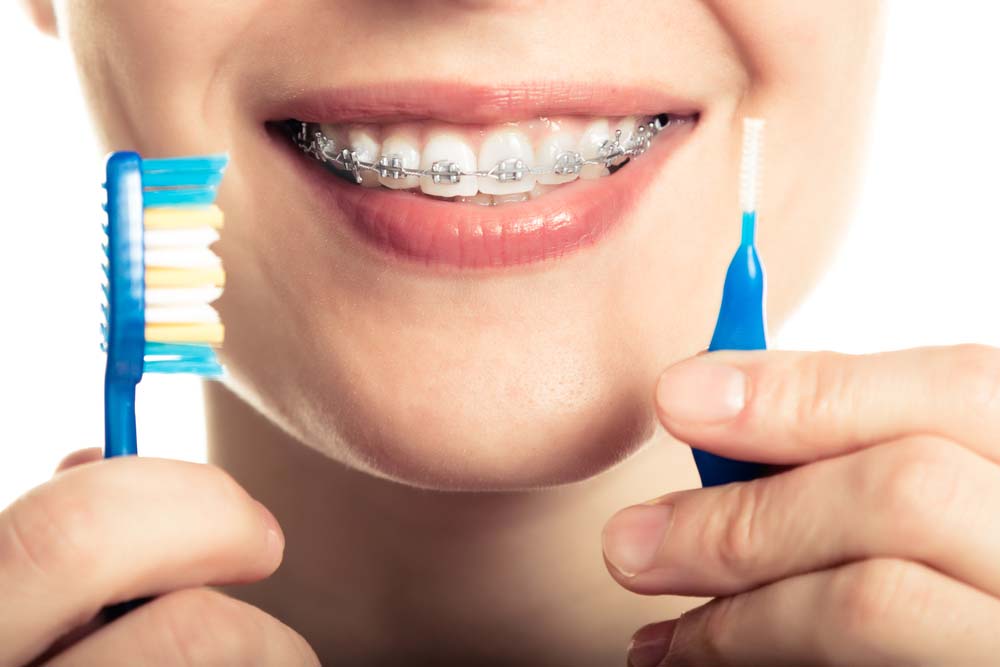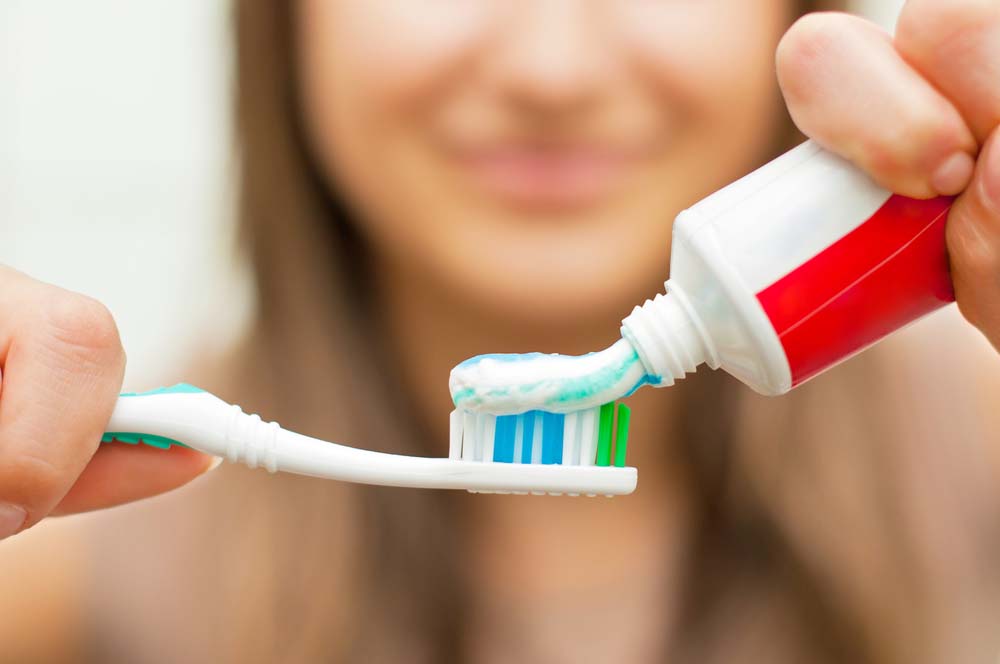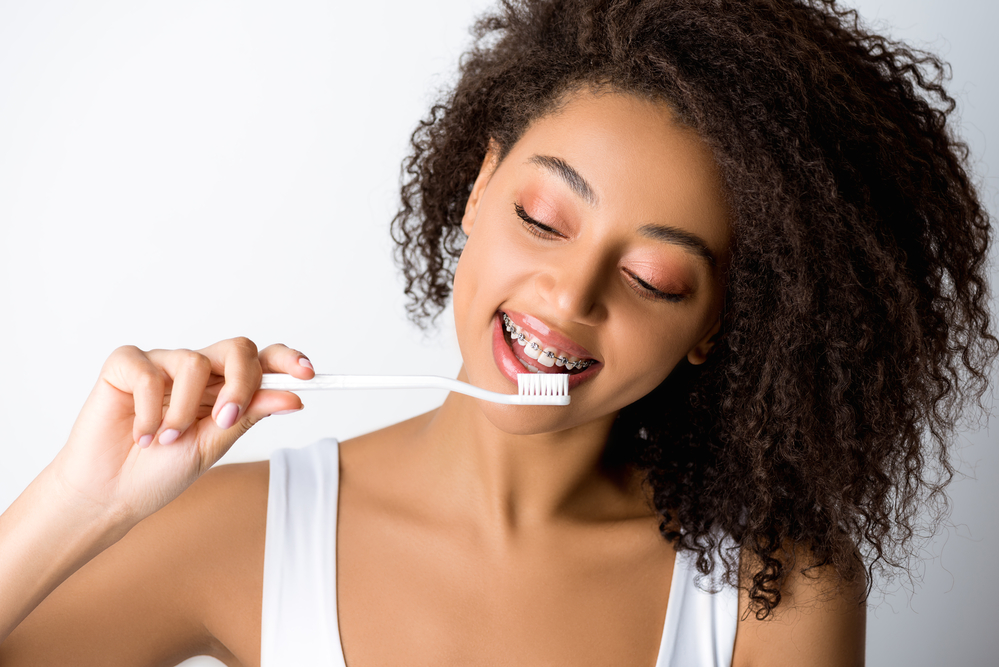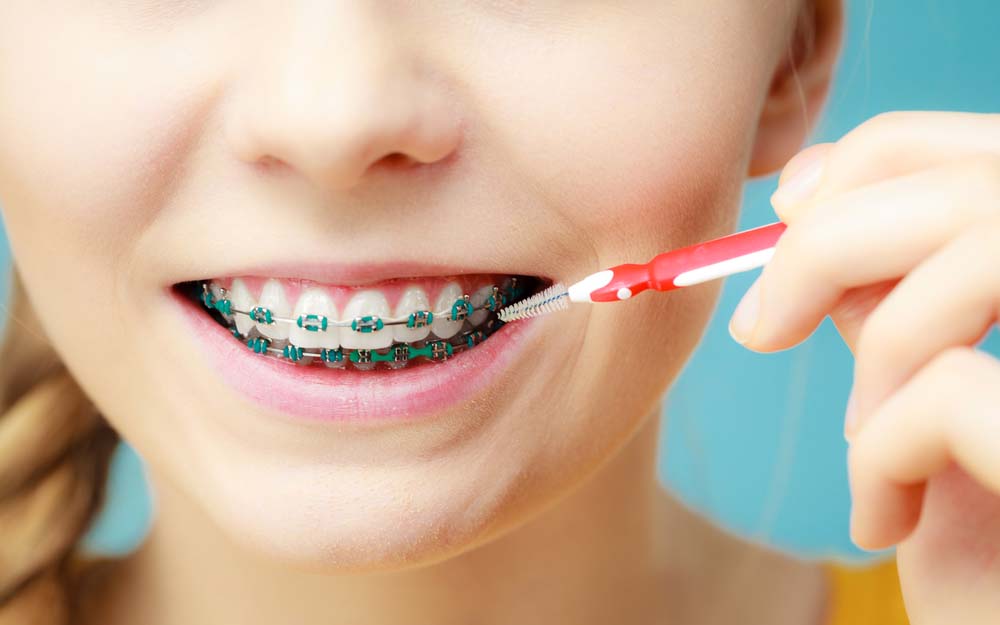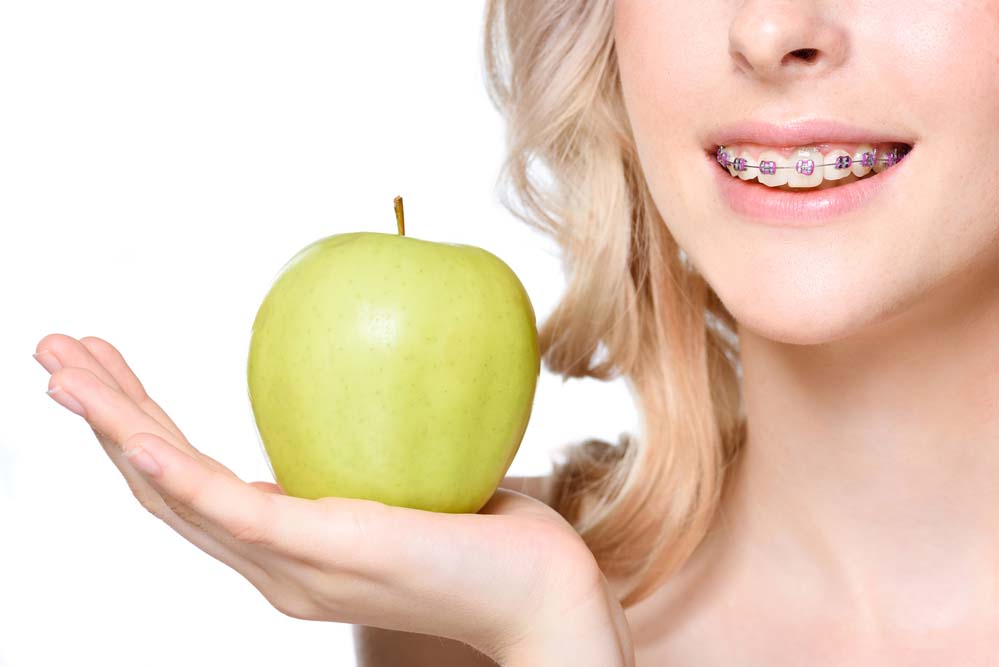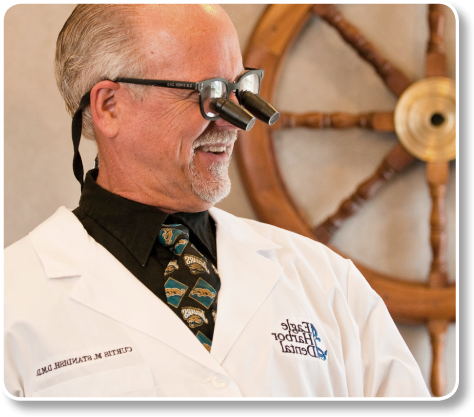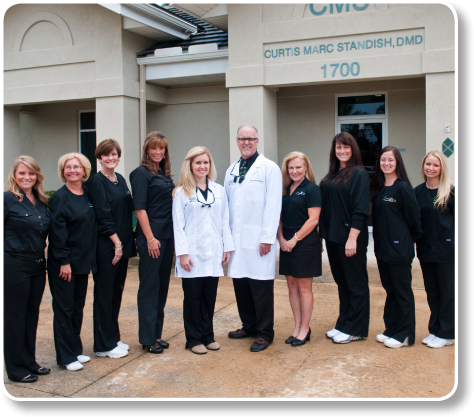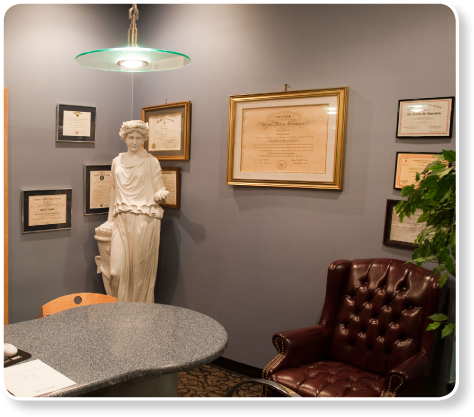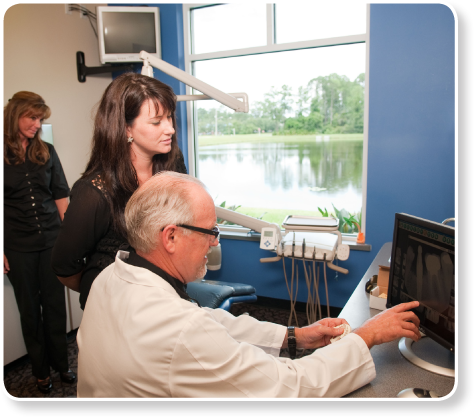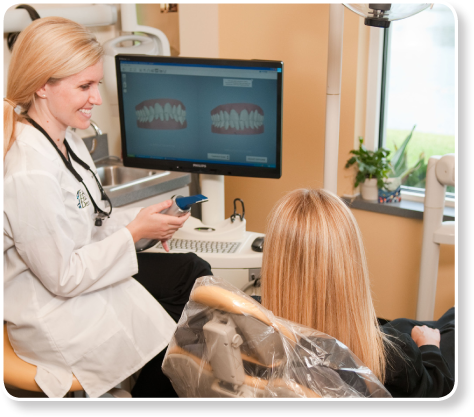Tips for Taking Care of Your Teeth When You Have Braces
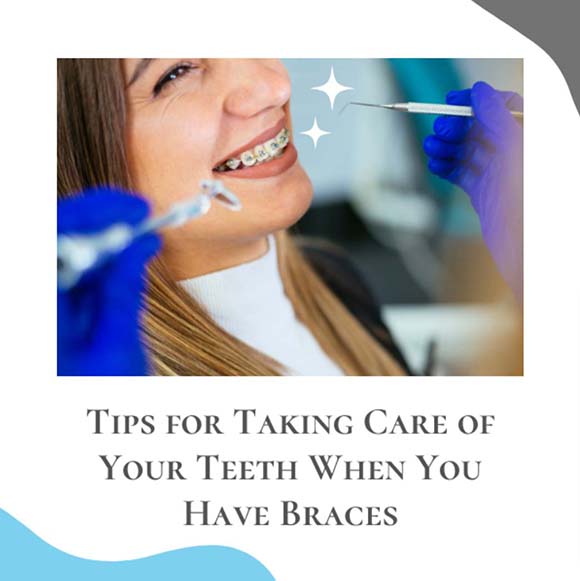
Do you have braces? Congratulations – you’re one step closer to your dream smile! On your journey, it’s important to pay extra attention to your oral hygiene. Brushing and flossing are trickier and food particles and plaque can get stuck in the brackets, causing bad breath and cavities. Here are some ways to take special care of your teeth while you have braces.
Use the Right Toothbrush
Ideally, use a soft toothbrush with an orthodontic or “V” cut where the bristles in the middle are shorter. This can help you reach the corners and crevices around the brackets and wires. There are also special electric toothbrushes for people who have braces. Other people also use a pointed gum massager to gently remove any food debris before they brush.
Choose the Right Toothpaste
The right toothpaste for you doesn’t have to change just because you have braces. However, a good toothpaste that will help protect your teeth against tartar and cavities is always a plus. Additionally, if your teeth are sensitive because of the braces, you may want to consider a toothpaste designed for sensitive teeth. Talk to your dentist about the best options for you.
Brush Your Teeth at All Angles
Start by angling your toothbrush at a 45-degree angle, but this isn’t the only angle you’ll need to use. Reposition your toothbrush as you go and change the angle at which you’re holding it so you can get underneath the wires and around the brackets.
Use an Interdental Brush
An interdental brush is a small brush designed to brush in small spaces that a traditional toothbrush can’t reach. Under the wires and in between the brackets of your braces are the perfect places to use a brush like this.
Brush Your Teeth Three Times a Day
Dentists recommend brushing your teeth three times a day, for at least 2 minutes each time. The idea is to brush your teeth right after you eat so that food that could get stuck in your braces won’t stay there for long. Don’t forget to brush your tongue, too – bacteria and biofilm can coat your tongue, causing bad breath and tooth decay.
Floss Your Teeth Well
Pick a thin, waxed floss. It’s less likely to get caught in the brackets. Insert it under the main wire, then through the gap between your teeth. It’s just like regular flossing, but you just need to make sure you don’t push against the wire. Slide the floss up and down to dislodge the plaque, then gently pull it out. It’ll take three times longer to floss with braces, but you’ll soon get the hang of this.
Rinse Your Mouth and Gargle Often
This is a good dental health tip for everyone, but it’s especially true for those with braces, as the pressure from the liquid can help blast out bacteria and food particles that your toothbrush can’t reach. Use a mouthwash that has extra plaque protection, for an added push of cleanliness.
Double-Check Your Work
Visually inspect your teeth after you’re finished brushing. You may notice any food particles that got stuck in your braces that you might have missed earlier.
Avoid Sugary Foods and Drinks
You know by now to avoid sticky or chewy foods that can ruin your braces, but beware of sweet food that can ruin your teeth! Sodas, fruit juices, and coffees are a common culprit: you don’t think you’re eating, so you forget to brush your teeth, but the sugars in these drinks can still increase your risk for tooth decay.
Consult with Your Dentist
Your dentist will check your teeth each time you go for an appointment. So, don’t skip those dentist visits – it’ll help your orthodontic treatment progress as expected, and give you a chance to have your teeth checked by a dental professional.
For informational purposes only.

